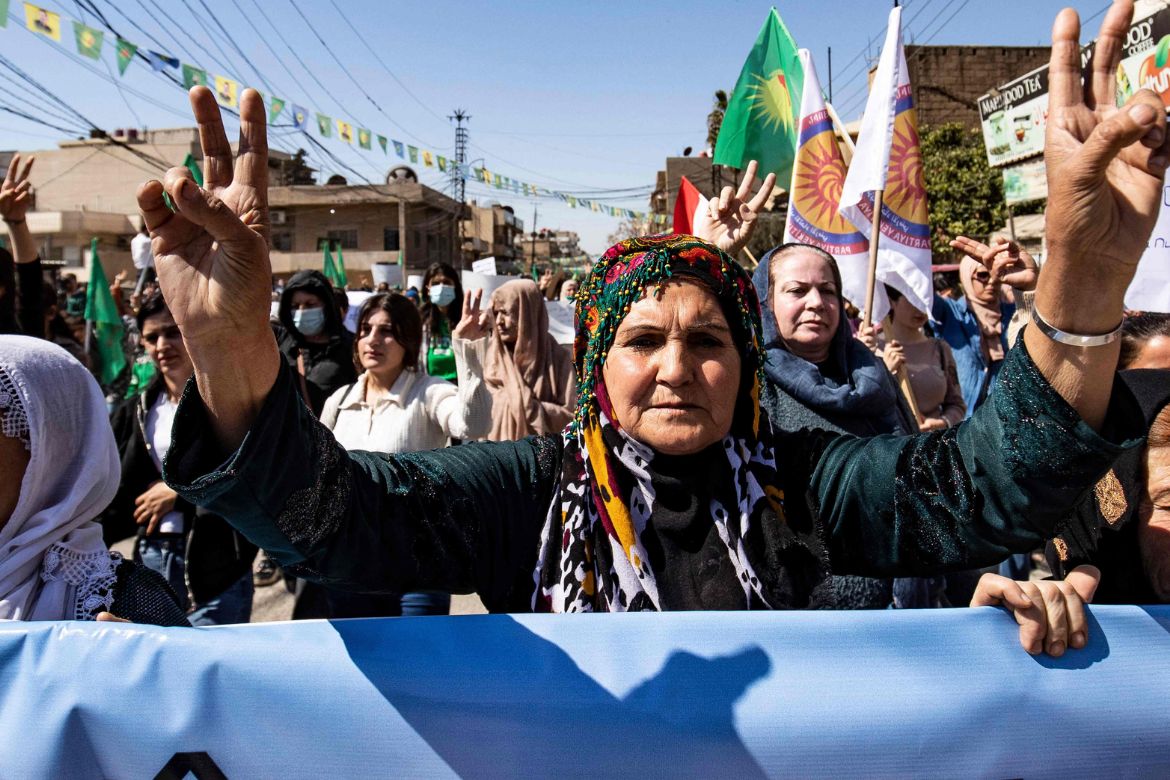The United States has expressed concerns that Syria’s draft constitutional framework is not progressing as expected, emphasizing that it is closely monitoring the formation of the interim cabinet.
Addressing the UN Security Council, US Charge d’Affaires Dorothy Shea reaffirmed Washington’s commitment to a political transition that ensures credible, non-sectarian governance as the best path to prevent further conflict. However, she noted that recent steps meant to advance Syria’s transition have “fallen short of expectations.”
U.S. Concerns Over the Draft Constitution
On March 25, 2025, U.S. Charge d’Affaires at the United Nations, Dorothy Shea, expressed apprehension to the Security Council about Syria’s draft constitutional framework. She indicated that the framework was not progressing as needed and emphasized Washington’s support for a political transition that embodies credible, non-sectarian governance as the optimal path to prevent further conflict.
Centralization of Power and Minority Rights
The interim constitution, signed by President Ahmed al-Sharaa on March 13, 2025, has been criticized for consolidating power within the presidency and inadequately safeguarding minority rights. The document establishes Islamic law as the primary source of legislation and grants the president authority to appoint ministers and judges without parliamentary approval. While it promises equality for all citizens, critics argue that it lacks explicit protections for Syria’s diverse ethnic and religious communities.
Domestic Opposition and Protests
The Kurdish-led Syrian Democratic Council has rejected the constitutional declaration, warning that it mirrors previous authoritarian practices and could exacerbate sectarian tensions. They have called for a more inclusive process that genuinely represents all segments of Syrian society.
In northeastern Syria, Kurdish women have actively opposed the draft constitution, asserting that it undermines women’s rights and paves the way for further oppression under Sharia law. They advocate for a democratic framework that ensures gender equality and minority protections.
International Implications
The U.S. has engaged with Syria’s new leadership, including a meeting between senior U.S. diplomats and President al-Sharaa in December 2024, to discuss the political transition and counter-terrorism efforts. Despite these interactions, the U.S. maintains concerns about the inclusivity and direction of Syria’s constitutional process.
In January, Hayat Tahrir Al Sham (HTS), the group that led the offensive resulting in the fall of Bashar Al Assad’s regime, appointed Ahmad Al Shara as transitional president. The group also abolished the 2012 constitution and dismantled the former government’s parliament, military, and security agencies.
By mid-March, Al Shara had signed a temporary constitution that placed Syria under Islamist rule while pledging to safeguard the rights of all citizens for a five-year transitional period.
Shea underscored the need for an inclusive political process, warning that the exclusion of Kurdish, Druze, Alawite, and Christian communities could deepen sectarian divisions and prolong instability. “Only a truly representative process will reassure Syrians that they have a place in their country’s future,” she stated. Without broad participation, Syria risks repeating past mistakes and increasing “the likelihood of a new civil war.”
She also raised alarms over the presence of foreign fighters in Syria’s military and governance, citing recent clashes in the coastal region where such forces have been accused of committing atrocities. “All foreign fighters must be immediately removed from their positions, and military units composed of foreign personnel must be disbanded,” Shea urged.
Syria’s new government has appointed several former foreign rebel fighters— including members of China’s Uighur minority, as well as Jordanian and Turkish nationals— to key roles within the Defense Ministry, a move that has drawn international criticism.
Meanwhile, UN Special Envoy Geir Pedersen stated that his team had provided input on the temporary constitution, offering guidance on international norms and best practices. “Some of our recommendations were incorporated, while others were not,” he said.
Pedersen also stressed the urgent need for economic recovery and substantial international support, advocating for “fast and broad sanction-easing” in sectors such as energy, investment, finance, health, and education.
Syria’s economy, devastated by nearly 14 years of conflict, remains in dire need of relief. Western nations, including the US, UK, and EU, imposed strict sanctions targeting individuals, businesses, and entire sectors in an effort to pressure Al Assad’s former regime.
While some sanctions have been temporarily suspended, their impact has been limited. In January, the US issued a six-month general license to facilitate humanitarian aid deliveries, but the measure did not go far enough to allow Qatar to fund public sector salaries through Syria’s central bank.
Transitional leader Ahmad Al Shara has called for a complete lifting of sanctions, arguing that their continuation is unjust following the removal of Al Assad’s government.


